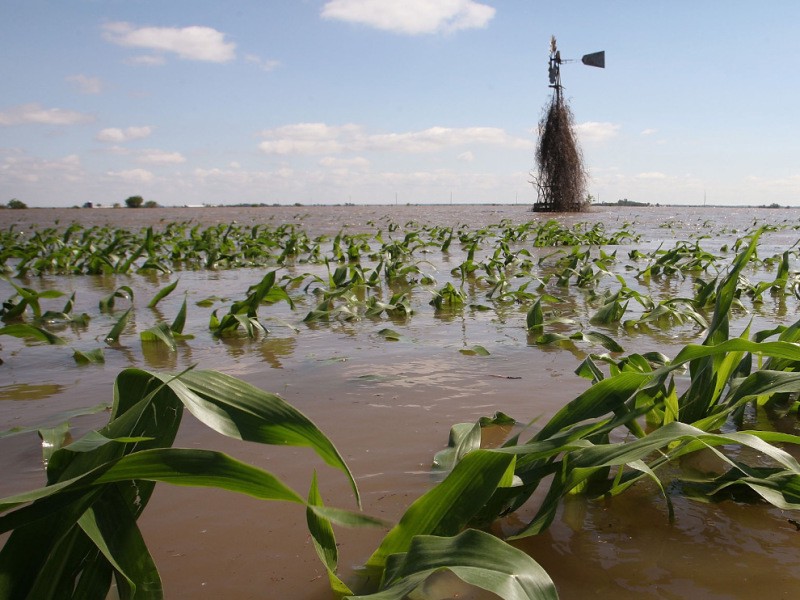Weeks of flooding in Nigeria have claimed nearly 200 lives and destroyed homes and farmlands, exacerbating the country’s food crisis, particularly in the northern region.
The National Emergency Management Agency (NEMA) reported on Friday that the floods, resulting from poor infrastructure and poorly maintained dams, have killed 185 people and displaced 208,000 across 28 of Nigeria’s 36 states. This has led to urgent efforts to relocate hundreds of thousands of people to temporary shelters.
Nigeria experiences annual flooding due to inadequate infrastructure and non-compliance with environmental regulations. The country’s worst floods in a decade occurred in 2022, killing over 600 people and displacing more than a million.
However, unlike 2022 when heavy rainfall was the primary cause, this year’s floods have been attributed mainly to human activities.
The Nigerian Meteorological Agency predicted either delayed or normal rainfall in most regions this year and emphasized that the current flooding is largely man-made.
“We are contributing to this climate change, which is causing shifts from the usual weather patterns,” said Ibrahim Wasiu Adeniyi, head of the central forecasting unit. “Some people dispose of waste improperly, while others build unauthorized structures along waterways,” he added.
NEMA has warned that the flooding could worsen in the coming weeks as water flows toward central and southern states. “People in flood-prone areas need to evacuate immediately … there’s no time left,” said NEMA spokesperson Manzo Ezekiel.
Jigawa State, the hardest-hit area, has reported 37 deaths, with the impact described as “devastating.” Authorities in the state are converting public buildings and schools into shelters for displaced residents, according to Nura Abdullahi, the head of emergency services in Jigawa.
The floods have destroyed 107,000 hectares of farmland, particularly in northern states, where much of Nigeria’s agricultural output is produced. Many farmers in the region have already been struggling due to economic hardship and violent conflicts that have forced them to abandon their farms.
As a result, Nigeria now has the world’s highest number of people facing acute hunger, with 32 million — 10% of the global total — at risk, according to the U.N. food agency.
In Zamfara State’s Gummi area, resident Abdullahi Gummi reported that the floods wiped out his family’s farmland, which was their primary source of income. “We spent around 300,000 naira ($188) on planting, but everything is gone,” Gummi lamented.





